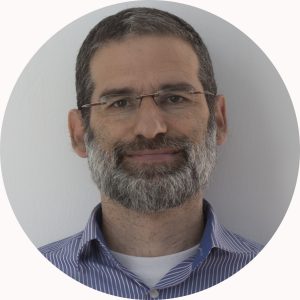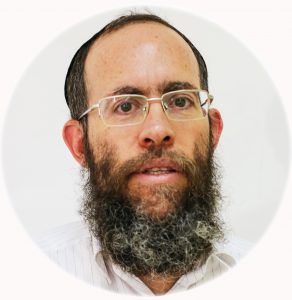נושאים
Translated by Netzach Sapir
A Nation Separate and Connected
They are a nation that dwells alone and amongst the nations they do not reckon. (Bamidbar 23:9).
To many, Bilam’s words define an essential quality of the Jewish people — they are alone and separate from the other nations of the world. At first glance it appears that Israel’s relationship to the world is indeed characterized by distance and difference, as if Israel’s isolation on an international level – and maybe even the very existence of anti-Semitism – is an inescapable fate. It’s true, there are certain mitzvot that obligate some degree of distance: Keeping kosher and observing Shabbat can occasionally make spending time with non-Jews difficult or impossible, and this can create a feeling of distance and separation. This phenomenon can be also be seen in modern spoken Hebrew, which refers to Israel as “ha’aretz” (the land) and everywhere else as “chutz le’aretz” (outside the land), and moving to Israel is called “aliyah” (going up) while leaving the country is called “yeridah” (going down).
But a study of the history of Israel as a nation reveals that the opposite is also true, and that the Jewish people have been remarkably connected to the rest of world. Jews have always interacted with the nations among which they lived, and frequently a mutually beneficial relationship existed between them. For thousands of years the Jews were dispersed across the surface of the world. There are some who saw this as a fulfillment of the Jewish mission of being a “light unto the nations.” The Netziv wrote: “and the main reason that most of our life is spent in exile is that the Holy One Blessed Be He revealed to Abraham that his offspring were created in order to be a light unto the nations, and this is only possible when they are dispersed in exile” (Ha’emek Davar on Bereshit 47:28).
The origin of the phrase “light unto the nations” is in Isaiah (42:6), but the Netziv connects it back to the original selection of our forefather Abraham in the book of Bereshit, where the Torah tells us his purpose and the nature of his relationship to humanity, “And Abraham will be a great and powerful nation, and all the nations of the world will be blessed through him” (Ha’emek Davar on Bereshit 18:18).
What is that blessing? The following pasuk explains the reasons for Abraham’s selection: “Because I have known that he will command his sons and his household to follow him and keep the way of G-d, to do righteousness and justice.” This prophecy has indeed been fulfilled. The Torah’s foundational values of righteousness and justice – including the sanctity of life, the principle that man is created in G-d’s image, human equality, and the basic standards of social justice – have become inalienable truths all around the world.
In addition, a remarkable number of Jews over the years have been leaders in the worlds of science, philosophy and technology. Jews like Marx, Einstein, Freud and Zuckerberg were behind global revolutions which shaped the human consciousness, even if ultimately, some of their contributions were negative. The vastly disproportionate number of Jewish Nobel prize winners (tens of times higher than their representation in the world population) also bears witness to Jews’ great involvement with human fate.
Connection through Uniqueness
Does this tension between isolation and universalism reveal a sort of schizophrenia in our national identity? We will see that it doesn’t. On the contrary, the two tendencies actually complete each other.
The Torah does not begin with the inception of Am Yisrael. It begins with the creation of the world and the dawn of the human race. After the story of the flood, G-d makes a covenant with humanity as a whole (Bereshit 9:8-17), and the following story, the tower of Babel, shows that G-d desires a multitude of nations in the world. The Tanach makes clear that G-d is not only G-d of Israel, but is the G-d of the entire world, “For from the rising of the sun until it sets, My Name is great among the nations, and in every place that an offering or pure sacrifice is dedicated to my name, for My Name is great among the nations” (Malachi 1:11).
The selection of one “chosen” nation does not imply the abandonment of the rest of humanity. On the contrary, the nation is chosen in order to carry out a mission to the rest of the world, as Isaiah stated above, in his end-of-days prophecy.
Paradoxically, the connection to humanity as a whole necessitates a certain level of separation from it. Israel’s unique status stems from its purpose and calling with regard to the rest of humankind. This can be compared to the priests, who are responsible for blessing the people and performing the Temple service on their behalf, and are thereby separate from the rest of the nation. So, too, is Israel’s task in the world: “And now, if you will listen to My voice and keep My covenant then you will be a treasure to Me among the nations, for the whole world is Mine, and you will be to Me a kingdom of priests and holy nation” (Shmot 19:5-6). The verses make clear that Israel’s unique status is not guaranteed merely by virtue of its race, but is dependant on the people’s actions in keeping the covenant with G-d.
When Bilam calls Israel “a people that dwells unto themselves and amongst the nations they do not reckon,” it seems he is praising the isolation of a people dedicated to a certain purpose. Since these words are said specifically by someone who comes from outside and who makes a point of praising Israel’s ability to separate itself, clearly he is not condemning Israel for being isolated and detached, rather praising the uniqueness of a people set apart by the weight of their mission.
Heart of the Nations
In the same vein, Rabbi Yehudah Halevi compared Israel’s role among the nations to that of the heart inside the body (Kuzari 2:36). The heart is unique in its central role in the body: It is connected to all of the other organs, in a constant state of communication with them. It is dependant on the other organs for its existence, but none of them could survive without it.
The metaphor is also appropriate in terms of the geographical territory that G-d chose to give his people. The land of Israel lies on the meeting point of three massive continents, and is a natural point of interaction. One can understand why G-d sent Abraham from his home in the east to the place which has been for all time a passageway between civilizations.
The continuation of the line from the Kuzari is fascinating: “He is sicker than all the rest and more healthy than all the rest.” Am Yisrael is simultaneously the sickest and most healthy of nations. According to the Kuzari, this is an expression of its great sensitivity. In other words, Israel has a unique ability to absorb both the best and the worst of what the world has to offer. We can see this in recent history. In the last century, three ideological movements have threatened humanity at large and sought to conquer the world: fascism, communism, and Islamic extremism. The first to suffer from each of these three movements were the Jews. Anti-Semitism rises not because Jews are separate from the rest of the world, but because of the degree to which they are connected to it. No one likes the messenger who brings up moral questions. That Hitler declared the conscience to be a Jewish invention is the greatest testimony to this truth.
No Constellation for Israel
The historian Arnold Toynbee (1889-1975) determined that certain rules govern the rise and fall of nations. According to his calculations, the nation of Israel should have disappeared long ago. The fact that Israel still exists as a nation did not cause Toynbee to question the truth of his theory or attempt to correct it; instead, he defined Israel as a “fossil” nation, still here but not really alive. Toynbee was an anti-Zionist who opposed granting national rights to the Jews, but it seems that about one thing at least he was right: The people of Israel are not governed by the same laws of history as are the rest of the nations. This observation also appears in the Talmud, where it says “there is no constellation for Israel” (Shabbat 156a). In other words, the ordinary laws that govern the world, which at the time were thought to be determined by astronomical constellations, do not apply to the Jews.
Israel and Humanity
Rabbi Elijah Benamozegh (1823-1900), an Italian scholar and kabbalist, presents his view of Israel’s relationship to the rest of the world in his book “Israel and Humanity.” He sees Judaism as the source and basis for a global religion to be based on the seven Noahide laws, including the command to establish court systems, and the prohibition of idolatry, sexual immorality, murder and theft. Many of these principles were adopted by humanity from Judaism, through the conduits of Christianity and Islam. Rabbi Elijah Benamozegh understands the final verse of the Book of Prophets, “and he will return the heart of the fathers to their sons and the hearts of the sons to their fathers” (Malachi 3:24) to refer to the relationship between Judaism and the religions that sprung from it.[1]
In order for Israel to fulfill its purpose in the world it must retain its identity, otherwise “the tiny drop of Jewish blood will be swallowed by the great arteries of the world. The soul of Israel will suffocate and its mission will not be realized. In order to maintain this nation it was necessary to take precautionary measures, such as the numerous commandments, which even when they don’t seem to be directly related to this goal, ultimately lead to it.”[2]
End of Days
With the establishment of the State of Israel, the menorah was chosen to be the country’s national symbol. One of the reasons for this is because of Isaiah’s vision of Israel as a light unto the nations.[3] But after the establishment of the State, the vision met reality, which doesn’t always match up to expectations, and the expression “light unto the nations” has become to many nothing more than a joke. But even as we are aware of our own shortcomings, we may not surrender the responsibility that we carry. The nation of Israel succeeded in capturing the imagination of humanity with the prophetic visions of a perfected world in which nations live side by side in harmony. Just as we managed to fulfill the vision of the return to Zion, despite seemingly insurmountable obstacles, there is room to believe that if we dedicate ourselves to it, we can also bring about these visions of peace. But the success of Israel in the world depends exclusively on our spiritual power; the fulfillment of the vision will never be carried out by political means. We see in the book of Isaiah:
And it will be in the end of days … and many nations will go and they will say “let us go up to the mountain of G-d, to the house of the Lord of Yaakov, and He will teach us His ways and we will walk in His paths, for the Torah comes from Zion and the word of G-d from Jerusalem…And they will beat their swords into plows and their spears into pruners. Nations will not lift the sword to one another and they will study warfare no more (Isaiah 2:2-4).
The fulfillment of the vision, according to Isaiah, is through the spread of the Torah and the word of G-d. The Torah of Israel does not attempt to convert the nations, not because it is indifferent to their fate, but because it believes that every person, including someone who is not Jewish, can reach the heights of holiness. We can see an echo of this idea in the gemara where it says that a non-Jew who studies Torah is comparable to the high priest (Sanhedrin 59a). This attitude enables one to create space for the other, because it doesn’t threaten his essential identity but strengthens it.
For thousands of years the motion of the people of Israel was from the outside inwards, from exile toward the land of Israel. We have successfully implemented the first step, we have returned to our home. The next step is to change our direction, to learn to go from the inside outwards, from Israel toward the world. While this does take a shift in mentality, it is really the logical continuation of the first step. The return to Zion is not an end in and of itself, it is a condition for us to be able to carry out our true goal.
There are many Jews and Israelis who desire to partake in the fate of humanity as a whole, and feel all too often that their Judaism is an obstacle preventing them from doing so. As Judaism’s connection to the world continues to grow, the feeling of estrangement will fall away and these individuals will return to Judaism’s embrace, “and the sons will return to their boundaries” (Jeremiah 31:16).
[1]Eliyahu Ben Amuzag, Israel and Humanity, Jerusalem 5727, p. 37 (printed in Hebrew)
[2] ibid p. 54
[3] S. Kahana, “The Menorah as the State Symbol,” http://moreshet.co.il/kahana/tavnit2.asp?x=249&kod_subject=1300&kod_subjectm=1323&pg


















